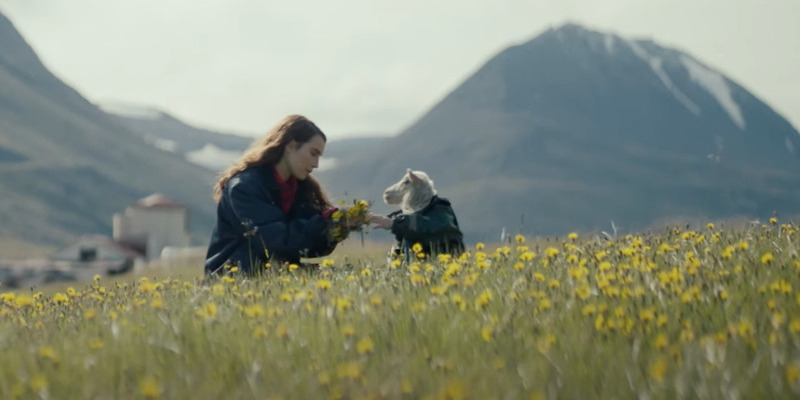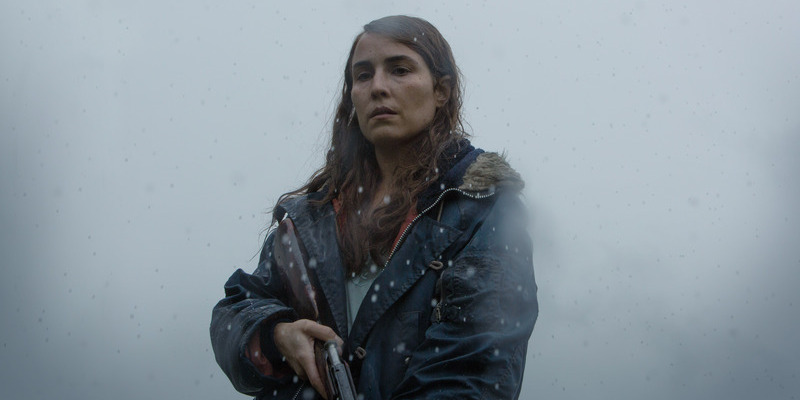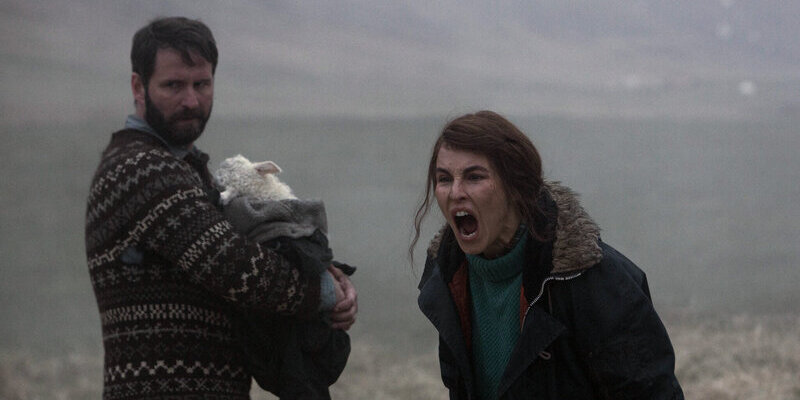
Review by
Eric Hillis
Directed by: Valdimar Joìhannsson
Starring: Noomi Rapace, Hilmir Snaer Gudnason, Björn Hlynur Haraldsson

Like its recent Swedish cousin,
KoKo-Di KoKo-Da, Icelandic director Valdimar Jóhannsson's feature debut
Lamb uses elements of folk-horror to explore themes of
grief and man's relationship with nature. Ironically, for a movie filled
with a sense of foreboding doom, it also features a CG/puppetry creation
as adorable as anything to come out of the Disney factory.
Married farmers Maria (Noomi Rapace) and Ingvar (Hilmir Snær Guðnason) spend their days running their sheep farm, only communicating to pass
on notes regarding broken down tractors and the like. Something awful
has clearly happened in their recent past to leave them this way, and
they badly need something to give their lives a sense of purpose beyond
professional duty.

That something arrives when a sheep gives birth, not to a lamb, but to
a lamb-human hybrid with the body of a human infant, albeit with a
trotter where one of its hands should be, and the head of a sheep.
Rather than recoiling in terror, Maria and Ingvar make an unspoken pact
to raise the creature as though it were their own child, naming it
Ada.
Trouble is, it's not their child, and the creature's mother cries
hysterically outside their window for her offspring. Something else is
lurking in the mist around the farm, represented by a heavy breathing
and snorting sound. And when Ingvar's layabout brother Petur (Björn Hlynur Haraldsson) shows up at the farm, the unconventional family Maria and Ingvar have
built finds itself under threat.

Through a mix of brooding horror and deadpan comedy,
Lamb explores the question of what makes a family. If
Maria and Ingvar choose to raise this unique creature in the manner of a
child, what of it? Who is being harmed? Of course, the issue of whether
man has a right to keep animals in captivity is also raised. Are Maria
and Ingvar right to give Ada a home, or they simply using the creature
as a substitute for something else beyond their reach? Would Ada have a
better life with her own kind? What even is her own kind – humans or
sheep?
Along with KoKo-Di KoKo-Da, Lamb shares elements with another recent movie, the
French oddity
Anonymous Animals, in which humans are treated as cattle by vengeful human-animal
hybrids. All animals start out cute like Ada, but what might a
sheep-human hybrid grow into? Jóhannsson's slowburn storytelling, which
makes great use of the almost mystical Icelandic landscape, suggests
this bond between man and animal won’t end well.

But along with the foreboding sense of doom, there's much in the way of
black comedy, particularly when Petur naturally questions the life he
finds his brother and sister-in-law living. One of the film's lighter
moments features a spot-on parody of Scandinavian synth-pop
groups.
Ultimately Lamb is about the notion of live and let live.
Unfortunately, that's not such a simple notion, as what constitutes
"living" varies from person to person, animal to animal.

